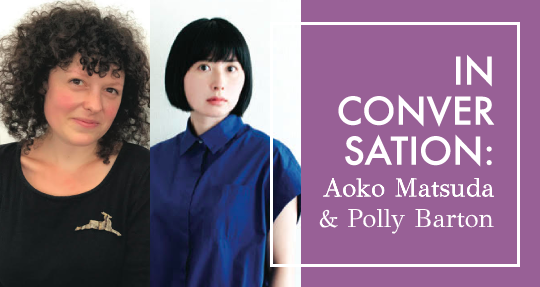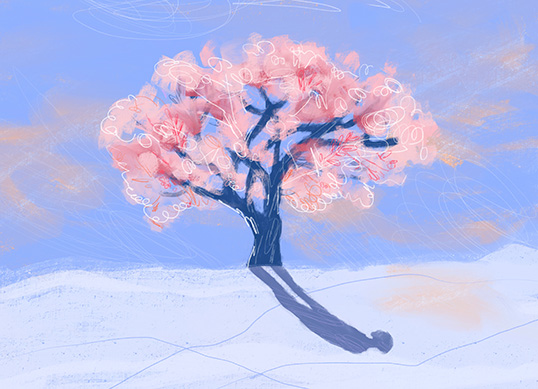One of my favorite pieces of writing by Aoko Matsuda, translated by Polly Barton, is a story called “The Woman Dies,” which appeared in a 2018 issue of Granta. “The woman dies,” it begins. “She dies to provide a plot twist. She dies to develop the narrative. She dies for cathartic effect. She dies because no one could think of what else to do with her.” The first half of the story is divided up into corresponding sections: “The woman gets married”; “The woman gets pregnant”; “The woman miscarries”; “The woman is raped.” Matsuda’s argument echoes that of many American feminist critics, like Laura Mulvey and Alice Bolin, but the story’s formal inventiveness and fierce narration distinguishes “The Woman Dies.” With piercing precision, she takes to task that most insidious and ubiquitous narrative crutch, where women are nothing more than receptacles for pain and trauma.
Matsuda’s short story collection, Where the Wild Ladies Are, recently published by Soft Skull Press and translated again by Barton, offers a sort of corrective for the female suffering that has always pervaded storytelling. Through a series of interlinked stories, Matsuda blends existing legends with new stories to give women the agency and power that they often lack in our traditional narratives. In revisiting and reimagining centuries-old tales, she draws connections between the past and present, emphasizing the ways in which history is never really over.
The stories of Where the Wild Ladies Are have an explicitly feminist bent; against the backdrop of Japanese ghost stories, Matsuda tackles issues like glass ceilings and workplace discrimination, as well as patriarchal expectations for women: that they be hairless, that they don’t outshine their male counterparts, that they contain their rage (even when it’s merited). She is just as outspoken a feminist in conversation as she is on the page. I recently had the pleasure of speaking with Matsuda, who is both a writer and literary translator (she’s translated work by Carmen Maria Machado and Karen Russell). Polly Barton also joined us and shed light on her work as Matsuda’s frequent collaborator. The three of us talked about Starbucks lattes, translating “Britishisms,” and the wonderful friendship that has blossomed between Matsuda and Barton.
—Sophia Stewart, Assistant Interviews Editor
Sophia Stewart (SS): The stories in Where the Wild Ladies Are draw inspiration from traditional Japanese ghost and yōkai tales, and the book includes a complete list of references and outlines of these original works in a section called “inspiration for the stories.” Aoko, how did you choose these specific tales as inspiration, and why did you want to bring these traditional narratives and contemporary stories into conversation with each other?
Aoko Matsuda (AM): Most of them are stories I’ve known since childhood. My favorite at that time was the ghost story of Okiku, because I also am from Himeji, where Okiku’s Well actually exists on the grounds of Himeji Castle. Summer is the season for kaidan—Japanese horror stories—and I used to watch the story of Okiku, along with other kaidan stories, on TV over and over. While watching her story, I found myself shouting to Okiku inside of my head: “Die Okiku, die quick, so that you can become a ghost with superpowers and have your revenge!” In my eyes, female ghosts in the kaidan stories looked so much livelier than living people, and were so much more fun to watch.
As I became an adult, I also realized how these old stories reflected and encouraged people to internalize misogynic views towards women, since most of the time those stories were written and told by men. So although I loved them very much, I’ve always had mixed feelings about them, and in writing Where the Wild Ladies Are, I wanted to create a space where all the female ghosts can enjoy themselves and find new lives. After I started to write the book, I did some research to find new stories I didn’t know of. One of the stories I was fascinated by was “Neko no Tadanobu,” which I rewrote as “The Jealous Type,” in which a jealous woman appears. The woman doesn’t have a big part to play in the story, and nobody feels sorry for her even though her husband is cheating on her. So in my story, I made her a main character and let her be as jealous as she wants. READ MORE…


